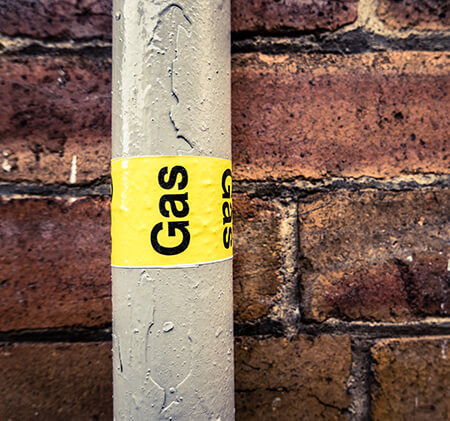5 Tell-Tale Signs Your Home Has a Gas Line Leak

According to statistics, more than 73 million commercial, industrial, and residential premises within the United States utilize natural gas. In addition, many homeowners use natural gas to power their furnaces, ovens, water heaters, stoves, and other appliances. When installed and utilized correctly, natural gas is convenient and extremely safe. However, it’s highly flammable, and gas line leaks can increase fire risks and explosions.
Gas leakages can cause physical symptoms and carbon monoxide (CO) poisoning in animals and humans. If you suspect a gas line leakage in your home, evacuate the residential property immediately, and call your utility company’s emergency number, local fire department, or 911. Below are five warning signs of a gas leak in your residential property and what you should do to contain the situation.
Unusual Smell
Generally, natural gas doesn’t have an odor or color. However, utility companies usually add mercaptan or methanethiol to the gas to give it a unique odor you can easily recognize. The additive creates a pungent odor, like that of rotten eggs or cabbage, but it’s completely harmless. If you notice the smell of mercaptan in your residence, you might be dealing with a gas leakage. Contact your plumbing service for inspection and repairs as soon as possible to prevent the issue from worsening.
Rust and Corrosion
Your gas pipes may rust and even corrode when exposed to excessive moisture or water. Corroded gas pipes can wear out with time, leading to gas leaks. Many people don’t pay much attention to rusting metal pipes, but rusting can extend and escalate the damage within a short time.
There needs to be more than cleaning rusty metal pipes to solve the problem. The best thing is to have your gas line pipes checked by a professional. Depending on the pipe’s condition, the plumbing expert can recommend minor repairs or a replacement of the entire gas line.
Hissing Sound
The other sign of gas leakage is a hissing sound near one of your gas-powered appliances. Gas can easily escape if your home’s gas line has cracks or holes. Although some openings are too small to see with your naked eye, sometimes you can hear the hissing sound of the gas escaping into the air.
Shut off your gas valve immediately after you hear the hissing noise to prevent the gas from getting saturated in your indoor environment. Also, ensure that there is no fire in the house since electrical sparks or a fire source can easily ignite the natural gas, leading to an explosion.
Don’t try to fix the gas line problem yourself because handling gas can be risky. Instead, leave the house immediately after shutting the gas valve off and call a plumber to investigate and solve the problem.
Discolored Flames
Most gas-powered appliances have a pilot light. And when there’s a gas leakage, this light may burn out. A gas furnace, for example, produces a hot blue flame every time you activate it. Therefore, if the furnace generates an orange or yellow discolored flame, you might be dealing with a ventilation issue within the heating unit or natural gas leak.
An orange flame normally occurs due to oxygen inside your gas pipes, which can only occur if the gas line has openings. Flames with orange flickers also indicate gas leaks. Therefore, you should pay attention when igniting your gas-powered appliances. If you notice a gas appliance’s pilot light producing a discolored flame, contact a plumbing expert to inspect your gas piping for leaks.
Health Problems
High gas concentrations in your home can hinder your body from absorbing sufficient oxygen, causing suffocation. Natural gas is extremely toxic and can lead to inexplicable health issues, including:
- Flu-like symptoms
- Loss of concentration
- Vomiting or nausea
- Memory problems
- Fatigue
- Throat and eye irritation
- Severe headaches
- Chest pains
- Dizziness
- Drowsiness
- Breathing difficulties
If you’re experiencing any of these symptoms and have no underlying condition, you might have been exposed to a gas leak. Remember that exposure to natural gas leakages for a long period can also lead to CO poisoning and even death. Contact a gas line repair expert to fix the problem and seek medical attention to treat your symptoms.
Contact the Plumbing Experts Now!
Gas line leakages can lead to health problems and increase the risk of fires and explosions. Knowing the warning signs of a leaking gas pipe can help you get help before the issue escalates. Are you seeing signs of gas leaks in your residence? Contact Mullen Plumbing, Heating and Cooling immediately to ensure your property’s gas piping is investigated and fixed to keep you safe.
We also offer ductwork, air quality, water heater, drain cleaning, cooling, heating, sewer line, and backflow prevention services in South Charleston, WV and the surrounding areas. Contact us today to schedule an appointment.
